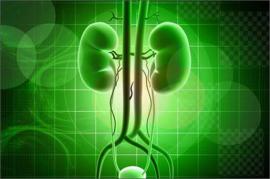Symptoms of Urological Diseases
- Common manifestations (body weight loss, fever, gynecomastia);
- Urination disorders (cramps, pain, urinary incontinence, frequent urination);
- Pain syndrome (in the lumbar region, groin, suprapubic region, pain in the perineum);
- Changes in urine;
- Abnormal discharge from the urethra (discharge of blood, pus) and changes in semen;
- Changes in the external genitalia in men - an increase of genitals, the narrowing of the foreskin (phimosis), lack of testicles in the scrotum.
- The suspicion or presence of sexually transmitted diseases (for men).
The most common Urologic Diseases
Urolithiasis - a disease in which a result of metabolic disorders in the kidneys and urinary tract are formed stones. If the stones are beginning to change their situation, to move, this is accompanied by severe pain and blood in the urine.
Cystitis - inflammation of the bladder. Cystitis is manifested by pain in the abdomen, frequent painful urination and appearance of pus in the urine.
Adenoma of the prostate (prostatic hyperplasia) - increase in the size of the prostate gland. Adenoma of the prostate is manifested frequent difficult or intermittent urination small portions, a feeling of incomplete emptying of the bladder, urinary incontinence, strong urge to urinate.
Pyelonephritis - the most frequent non-specific inflammatory disease of the urinary organs, damaging the renal parenchyma and pelvis. Pyelonephritis manifested in a significant increase in body temperature, intense constant pain in the lumbar region, or hypochondrium changes in the urine.
Glomerulonephritis - immunological kidney disease, which manifests itself affecting the glomeruli. The initial symptoms - swelling in the legs, pain in the lumbar region, the appearance of red blood cells and protein in the urine.
Prostatitis - inflammation of the prostate gland. Manifested by intoxication, pain in the groin and perineum, frequent copious and painful urination, purulent discharge from the urethra.
Acute renal failure - a sudden violation of all kidney function. Characterized by sudden cessation of receipt of urine in the bladder (anuria), followed by a sharp violation of the patient's condition.
Chronic renal failure - a gradual loss of kidney nephrons due to chronic progressive renal disease. Since the kidneys long do not perform their function, developing intoxication.
Treatment
The process of any treatment of urological diseases is a multistage and consistent. The first stage of treatment is symptom relief and elimination of the pathological process. The second stage of treatment - is prevention or relapse prevention and further development of the disease. The third stage - medical rehabilitation - recovery of functionality of the organs and system, which was broken during the development of the disease.
Methods of treatment in Urology: conservative (medicamentous), non-pharmacological and operative (surgical operations).
hide
 Urology - area of medicine dealing with kidney disease, urinary tract in men and women, pathological changes in male genital organs.
Urology - area of medicine dealing with kidney disease, urinary tract in men and women, pathological changes in male genital organs. 






